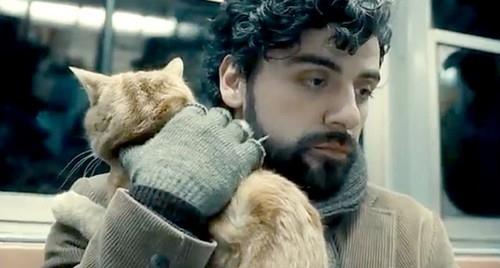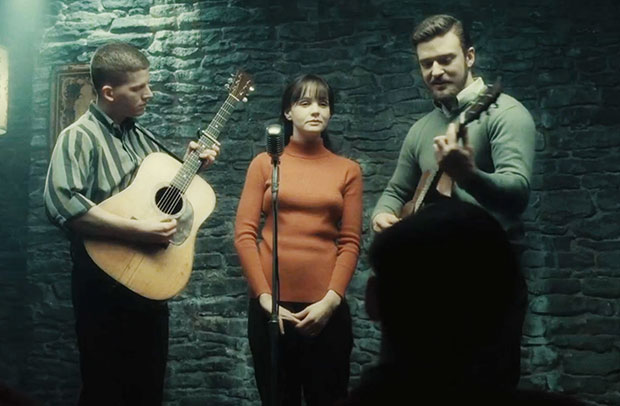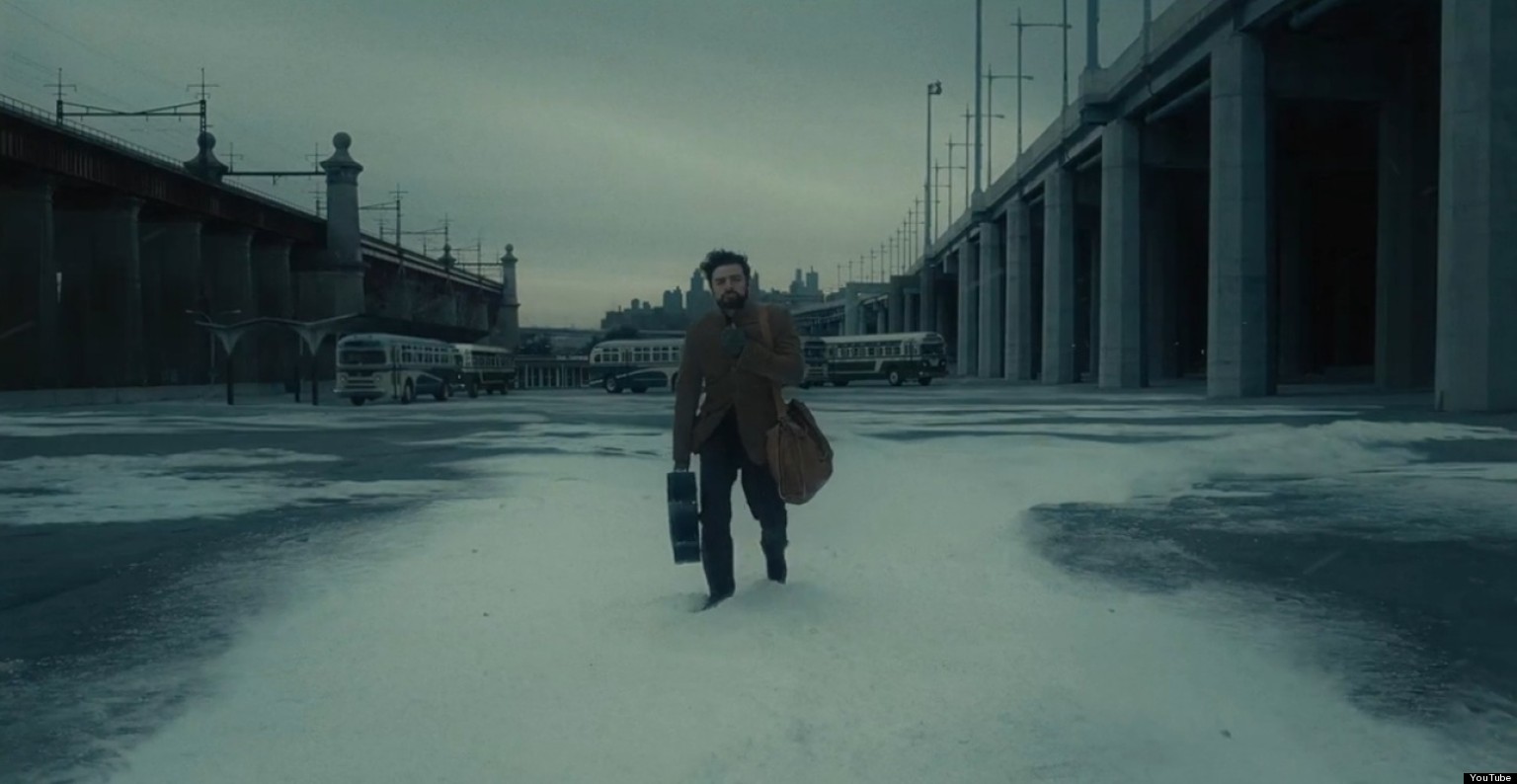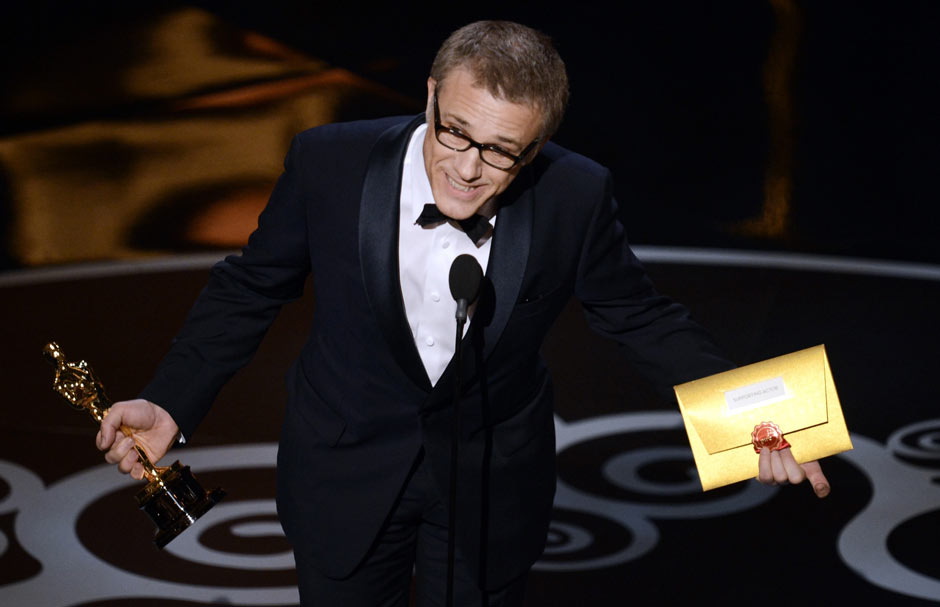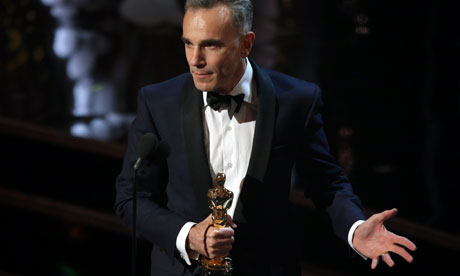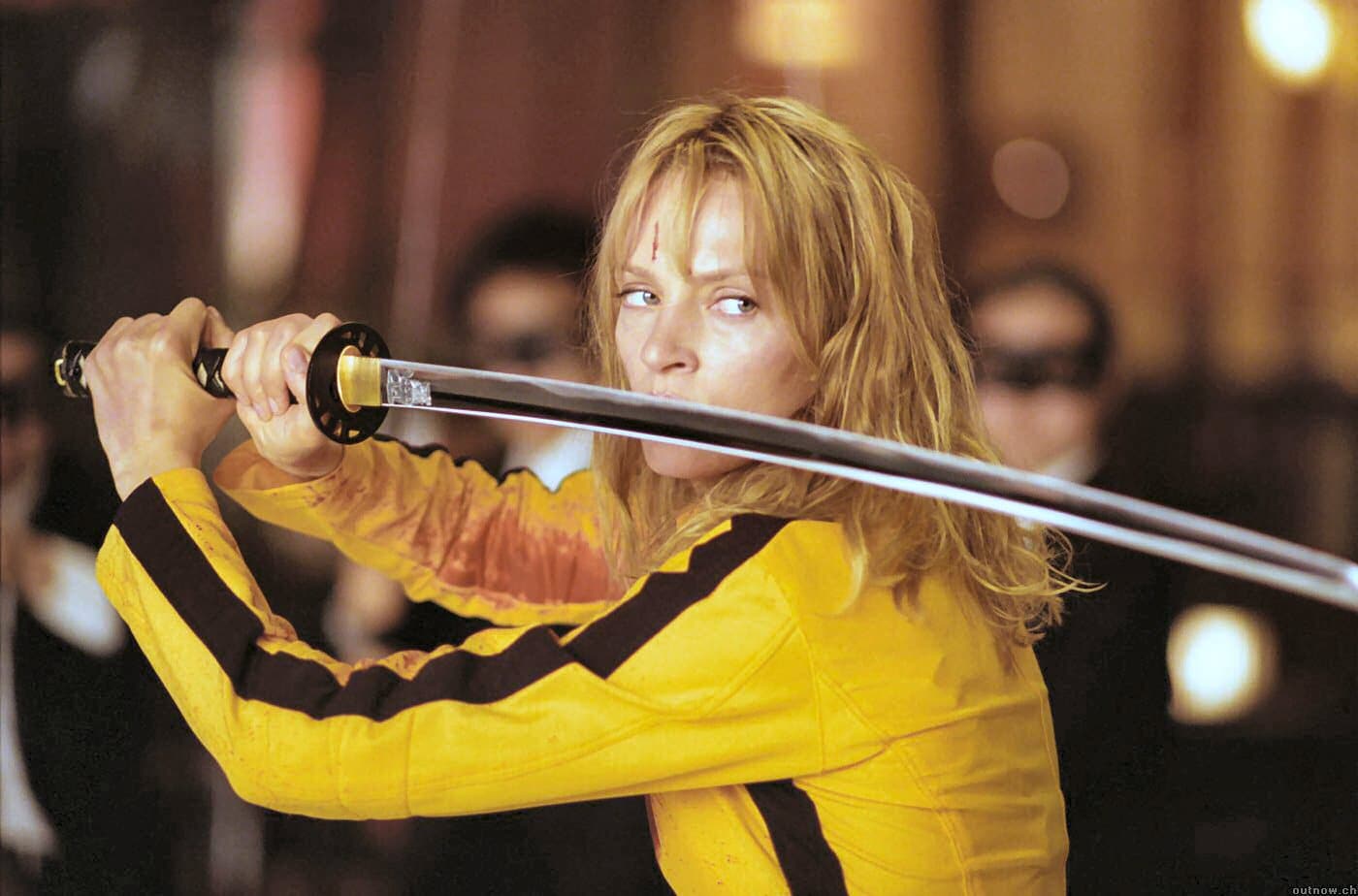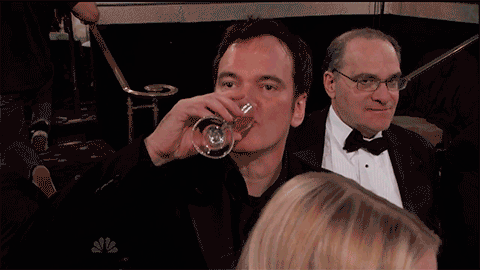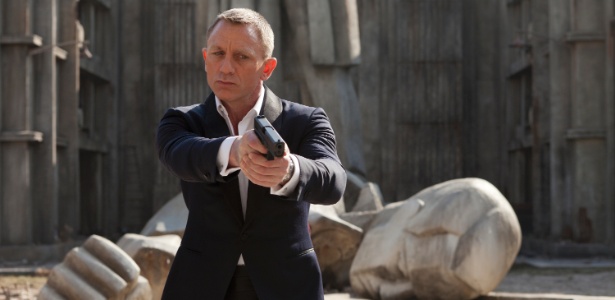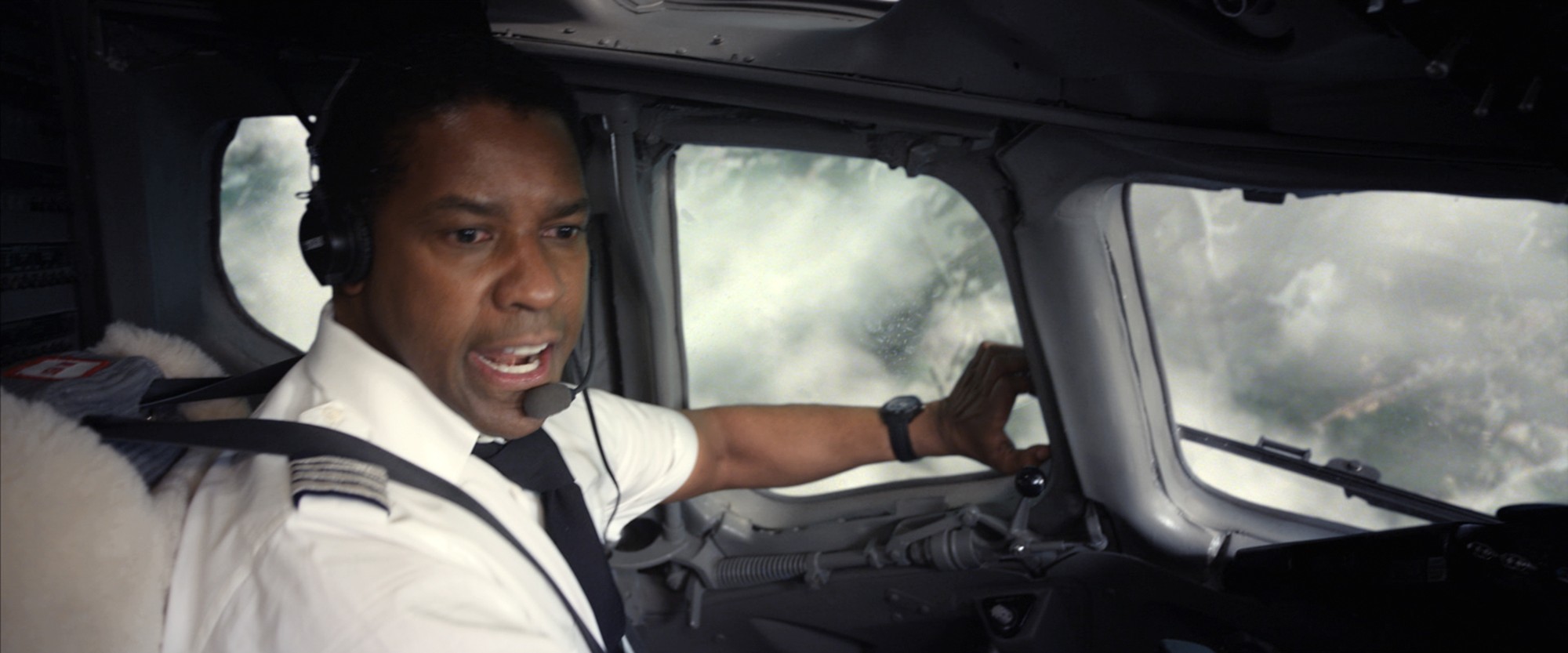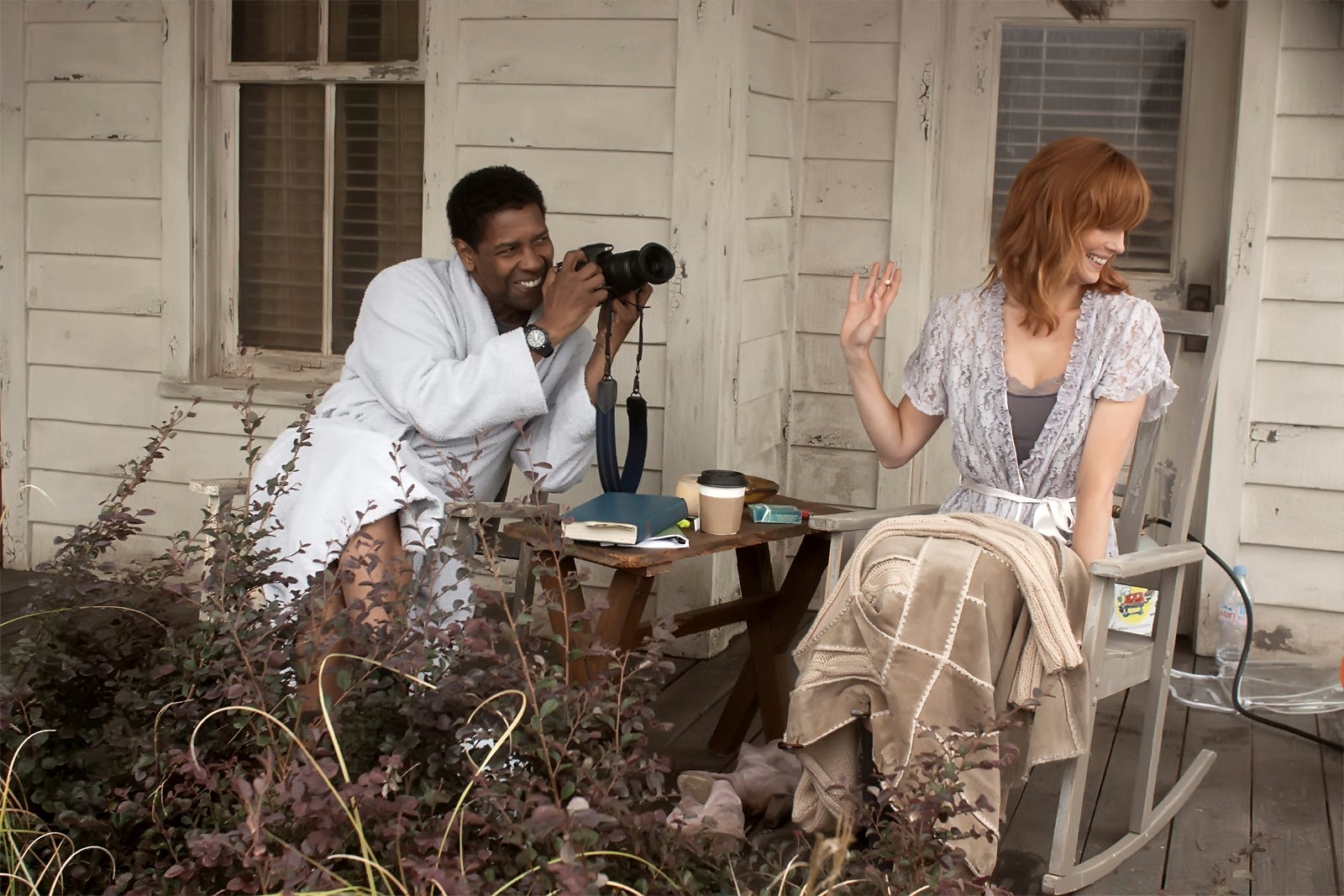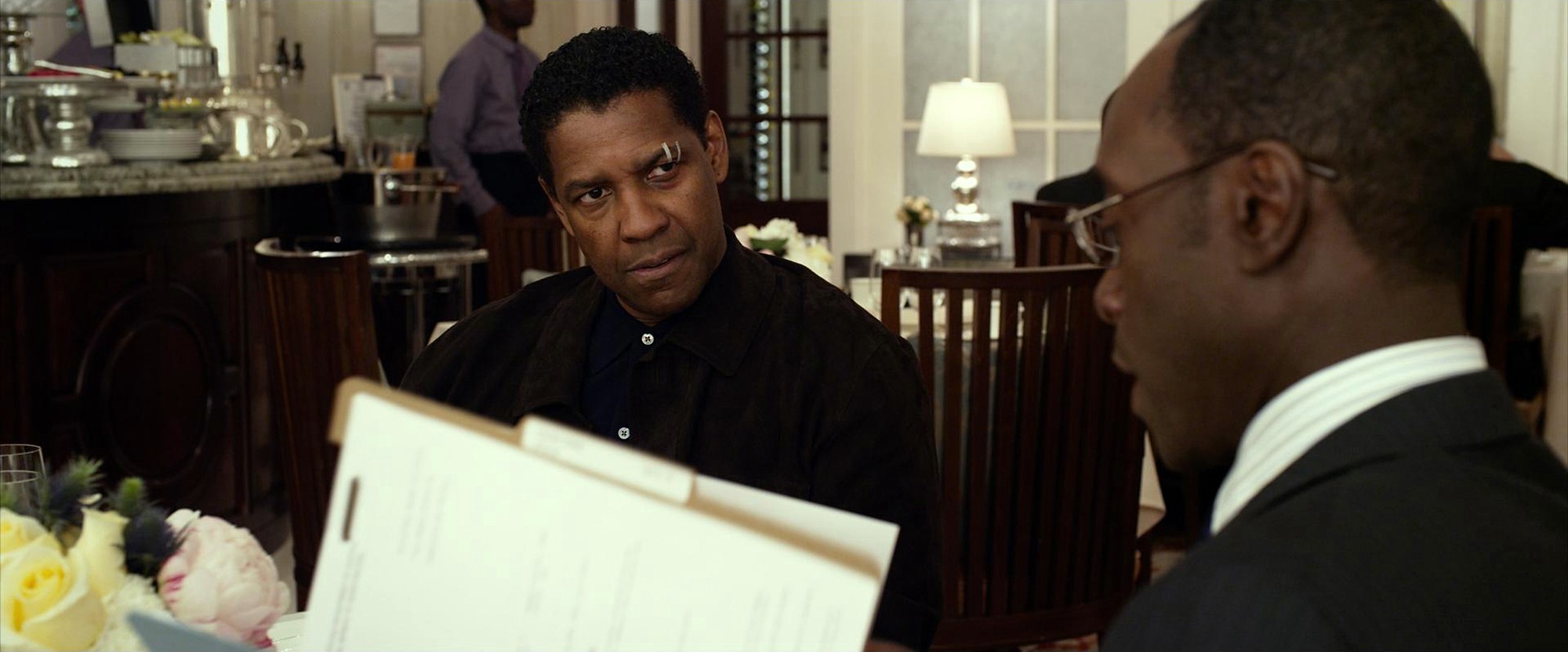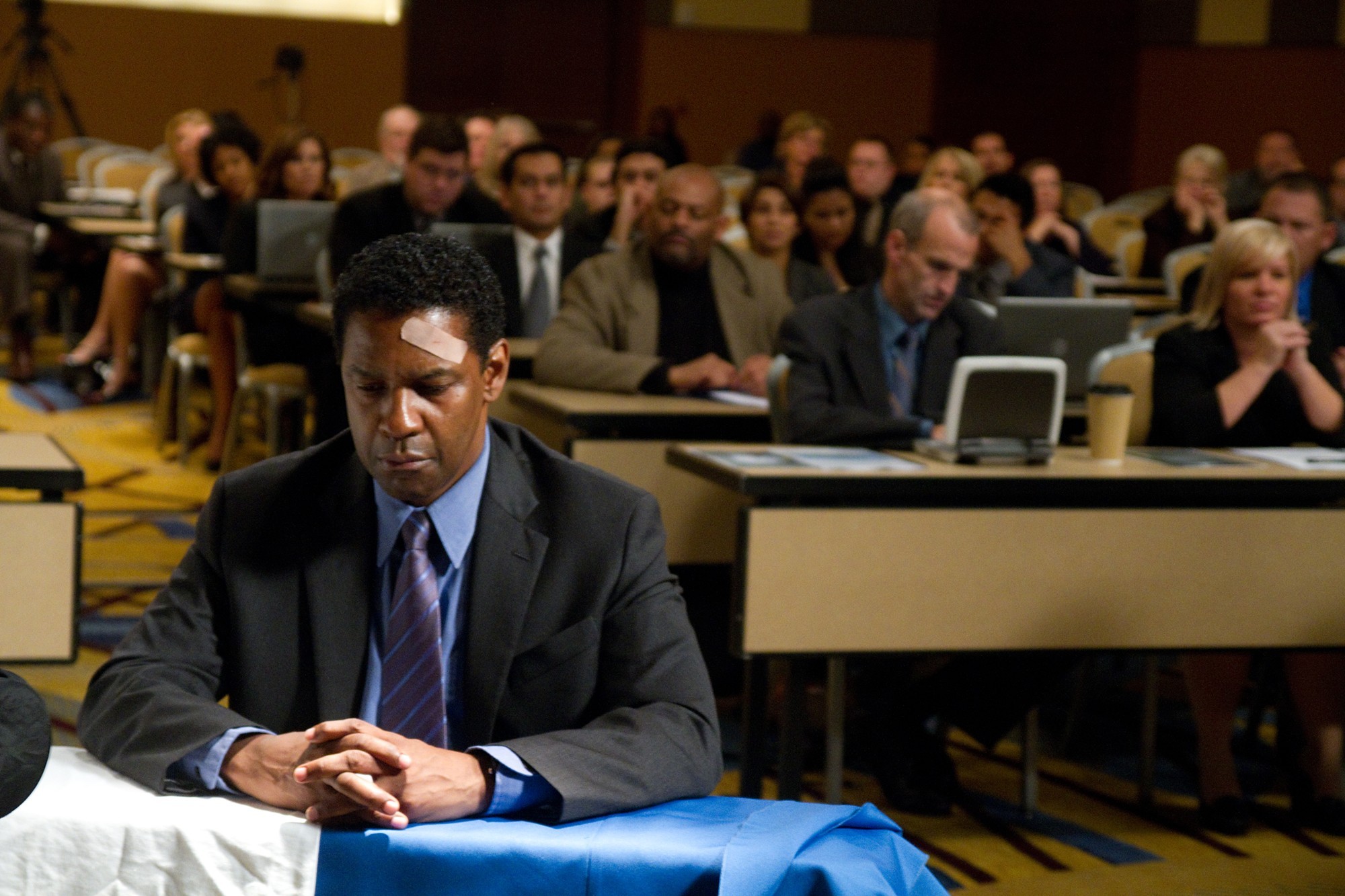Saturday, November 16, 2013
LEFF: "Only Lovers Left Alive", one thousand years of existencial crisis
I'm not a superstitious Victorian but, in these days, vampires are all around the place. From massive book and movie franchises, Twilight put them out there. It sucked the gloom out of the heirs of Count Dracula and Nosferatu, turning them into teenage sparkling fantasies, while shamelessly disregarding any consideration for the culturally and socially cemented vampire mythology. But the important thing is: they are being seriously revised. Abraham Lincoln: Vampire Hunter, however stupid it may sound, plays with the historical figure of the American President; the incredible Swedish Let the Right One In tells a sinister love story between vampire children.
And how would Jim Jarmush do it? Well, by simply fang-biting a Jim Jarmush story and turning it.
Only Lovers Left Alive is a languid, ironic, existentialist, dark romance about two lovers who have been in love for centuries. Adam (Tom Hiddlestone), in black, is a suicidal romantic musician, cynical about the current times, still mourning over the death of his heroes (Galileu, Newton, great scientists mostly), depressing over technology and a decaying, valueless society, revolted about the way his musical career turned out (he never put anything out there, though he's the real composer of some of the greatest Schubert pieces, and the others). Eva (Tilda Swinton), in white, is a wise, restrained but grateful, tolerant, kind, dance-loving "person", still bewildered by book passages she's been reading for hundreds of years (when she travels, she literally takes the best books ever written, which obviously includes David Foster Wallace's Infinite Jest). Two unforgettable performances (is it that everything Tilda touches turns into gold?) fairly sidekicked by John Hurt (I always bow down to this guy), Mia Wasikowska (feels so real that she was bit around the sixties and currently lives in L.A.) and Anton Yelchin.
The couple is melancholically cool ("That is so 15th century."). The places are metaphors for contemporary America and a convicted world. Seductive roamers, car night-drifters, they cross back and forth through the bankrupt, collapsed city of Detroit (where operas were once sang in beautiful theaters, where the greatest American cars were once made) and get stuck in Tanger, Morocco.
References and self-consciousness are just enough, shedding the film in an amusing, playful aura (Marlowe wrote everything Shakespeare took credit for, and still hates the "philistine" for it; Eve's sister draconian qualities turn out to be mere pesky teenage irresponsibility; humans are called "zombies"; it abandons the elegant stylistic virtues of the first five minutes to focus entirely on the characters).
This is mythological: they have fangs, they're bloodsuckers, they can turn people or suck them to death, they can't live during the day, they're immortal but can die if stabbed with a wooden spike or shot with a wooden bullet, and so on. But this is also the most human, naturalistic vampire story imaginable - say, they don't sleep in coffins because things can be much more comfortable and... normal. They struggle to stay hidden, because the media would destroy them. They struggle to stay fed because society would catch them (you can't throw bodies in the Thames like in the 1600's).
But, most of all, though they've been everywhere and witnessed everything, though they're the most cult and bright people in the world, they struggle to find a meaning of life. And just like in a Woody Allen film, only love keeps them alive.
Labels:
Anton Yelchin,
Estoril'13,
Jim Jarmush,
John Hurt,
Tilda Swinton,
Tom Hiddlestone
Sunday, November 10, 2013
LEFF: "Inside Llewyn Davis", a masterpiece, should we wonder why?
Bob Dylan sang about how times were changing. When he was electrified from cord-drumming, frayed folksinger into one of the most influential rock starts of all time, he was scared as all shit and his first albums were blown in the same winds that flurried the countercultural long hairdos of hippies and easy riders. Those are the biopics of legendary historical definition we know. But Inside Llewyn Davis takes place in 1961, right before Dylan arrived to the New York folkscene, and hums about the ragged waifishes whose verses never met acclaim but had to be sang there and then if the unfathomable, shadowed roots of change and success of folk music were to grow.
They were a meager coterie of young folk musicians who had their own culture, away from the America of the McCarthyism, and despised the ephemeral, gooey pop commercial hits the radios played. They gigged in the heavy scented cafés of The Greenwich Village, dark holes where this secret language expressed the native rawness, honesty and the hoarse authenticity of the early music, without ever glimpsing at what the world was saving for three-cord players. They were a tale of suspension, of in-between. That's were Llewyn starts, joking that if it's not old an it's not new, then it's a folk song.
Our guy is a penniless, couchsurfing homeless, has a passive-agressive relationship with a woman he impregnated who needs to abort, can't get representation nor royalties, doesn't sell, loses a cat and so on. Brave and brilliant storytelling create characters and tone (two of strongest elements of the coenesque) not according to the brothers' career but to the specific sense of time, place and people they are portraying: Llewyn Davis' life is also suspended and his journey, like the lyrics and melodies of the time, is the most sincere, authentic, emotional film the Coen's have ever made. With them, I'm used to feel fear, anxiety or existential angst, but this tragicomedy made my bursts of laugh crumble into deep sadness.
Cats are the simplest of the comic-reliefs and the few sources of momentary serenity in Llewyn's life (the others are the songs). But they're also reminders of delicious Coen trademarks - they are quirks and codes for one of the most beautiful, oneiric shots of the filmmakers' filmography. There are eerie establishing shots, with weird lines and perspective and John Goodman is a treat as their typical boaster character - a comatose Jazz musician who represents the «Folksongs? I thought you said you were a musician.» attitude and walks with the help of two crutches (wink at Wilder's Double Indemnity).
The brothers are exquisite craftsmen of plot (remember Fargo and Miller's Crossing crime twists) but, and summoning the cat's name (Ulysses), it recalls O Brother, Where Art Thou episodic framework, with an open ending that hits us with a punch in the belly and locks us in the same suspension, despair and uncertainty of the whole picture.
The cast is top notch: Oscar Isaac scores the best performance I've seen this year with restrained anger and desperation; Carey Mulligan is a beautiful, furious woman who, in other life, could've been the perfect love interest; Justin Timberlake and Adam Driver are hilarious; Garret Hedlund is silently gorgeous and idealistic, has a Jack Kerouac semblance and recites a poem echoing the Beat Generation; Stark Sands could have his own movie with only five minutes on screen; and the rest keeps up.
The details of reconstruction are precious, and the atmosphere and hue seem lifted off the cover of The Freewheelin' Bob Dylan. They keep playing with genre like no one else in the business, mixing the best of the biopic (Llewyn is inspired by Dave Von Ronk's posthumous memoir, The Mayor of the MacDouglas Street), the musical (the film is pin-pointed around full-length performances of folk songs) and the road movie.
But Inside Llewyn Davis is much more than narrative and stylistic accomplishment. The Coens created an epically intimate story about an all-time looser, a guy who will be loading forever while others make money, history and newspaper covers. It is a profound interrogation on the premise of life, where no matter how good you are, whatever you do, you'll hit on things, things will hit on you, and the future always wears a hooded cape (or a suit, but then it stands in a somber alley, like in a film noir). Abandonment and loneliness make one wrestle with integrity and despair, and the only thing capable of heating a pair of wet socks is a song that also happens to shoo the misery.
When a desk clerk assuredly asks Llewyn «You're not Hugh Davis' kid are you?», Llewyn finally cracks: «Why not?»
Maybe, again, Dylan was right: «So it ain’t no use to sit and sigh now, darlin’ / And it ain’t no use to sit and cry now / It ain’t no use to sit and wonder why, darlin / Just wonder who’s gonna buy you ribbons when I’m gone.»
Thursday, November 7, 2013
Libon & Estoril Film Festival (8-18 Nov.), starts tomorrow with amazing line-up
Inside Llewyn Davis, written and directed by the Coen brothers, opens the festival tomorrow at 22h at Cinema Monumental, followed by Roman Polanski's Venus de Vison at 00h at Centro de Congressos do Estoril.
Friday, October 25, 2013
Artigo convidado para o Split Screen nomeado para os TCN Blog Awards
Escrevi em português sobre a minha experiência no 61º Festival Internacional de Cinema de San Sebastián, para o blog Split Screen, e ontem recebi a notícia de que eu e o Split Screen fomos nomeados para Melhor Reportagem nos Take/Cinema Notebook Blog Awards 2013 (o A Gente Não Vê esteve nas nomeações em 2010, como Melhor Novo Blog). O Split Screen é um sítio incrível, coordenado pelo Tiago Ramos, que coleccionou nomeações para Blogger do Ano, Melhor Artigo de Cinema (sobre as indústrias de cinema portuguesa e b
rasileira, a partir do filme O Som ao Redor), Melhor Crítica de TV (Rectify - Temporada 1), Melhor Blog Colectivo e Melhor Reportagem (Fantasporto 2013).
I wrote in Portuguese about my experience at the 61st San Sebastián International Film Festival, on the blog Split Screen, and yesterday received the news me and Split Screen were nominated for Best Coverage on the 2013 Take/Cinema Notebook Blog Awards (A Gente Não Vê was nominated in 2010, for Best New Blog). Split Screen is an amazing place, coordinated by Tiago Ramos, who collected nominations for Blogger of the Year, Best Film Article (writing about the Portuguese and Brazilian film industries, inspired by the movie Neighboring Sounds), Best TV Review (Rectify - Season 1), Best Collective Blog and also Best Coverage (Fantasporto 2013).
rasileira, a partir do filme O Som ao Redor), Melhor Crítica de TV (Rectify - Temporada 1), Melhor Blog Colectivo e Melhor Reportagem (Fantasporto 2013).
I wrote in Portuguese about my experience at the 61st San Sebastián International Film Festival, on the blog Split Screen, and yesterday received the news me and Split Screen were nominated for Best Coverage on the 2013 Take/Cinema Notebook Blog Awards (A Gente Não Vê was nominated in 2010, for Best New Blog). Split Screen is an amazing place, coordinated by Tiago Ramos, who collected nominations for Blogger of the Year, Best Film Article (writing about the Portuguese and Brazilian film industries, inspired by the movie Neighboring Sounds), Best TV Review (Rectify - Season 1), Best Collective Blog and also Best Coverage (Fantasporto 2013).
Thursday, October 17, 2013
Lisbon & Estoril Film Festival is even stronger (yap) in 2013
If I could make it to all the sessions, I could cut my most-anticipated-2013-films list by a chunky half or something like that. Once again, the festival is amazingly eclectic, bringing acclaimed authors and creators from arts other than the seventh (literature, music, painting, dancing, even drifting into television). Please, check out the guests because I wouldn't have room to take them all into fair account.
My personal highlights:
Everything by Wong Kar-Wai and James Gray, including their latests The Grandmaster and The Immigrant, respectively (the directors will be in Lisbon for masterclasses);
Inside Llewyn Davis, written and directed by the Coen brothers, my most awaited film of the year;
Gloria, written by Sebastián Lelio and Gonzalo Maza and directed by Lelio, starring Silver Bear winner Paulina Garcia, one of the beautiful films I saw in San Sebastián;
The Past, written and directed by Asghar Farhadi, the author of one of the most surprising and brilliant films of 2011, A Separation (nominated for Oscar for Best Original Screenplay and winner of Best Foreign Film), starring The Artist star Bérénice Bejo, Iran's pick for the foreign Oscar race;
Blue is the Warmest Color, written and directed by Ghalia Lacroix and Abdellatif Kechiche (based on a comic by Julie Maroh), directed by Kechiche, the three-hour-long epic about teenage lesbian love who won the Golden Palm and has been causing much controversy in the media lately;
Fruitvale Station, written and directed by Ryan Coogler, the most adored Sundance-flick of the year (a little bit like Beasts of the Southern Wild last year);
A Glimpse Inside the Mind of Charles Swan III, written and directed by frequent Wes Anderson collaborator and son of King Francis Ford, Roman Coppola;
Child's Pose, written by Razvan Radulescu and Calin Peter, directed by Peter, hopefully another Romenian pearl, who nabbed the Golden Bear this year;
Venus in Fur, written by David Ives (based on his play) and Roman Polanski, directed by Polanski, two years after LEFF brought Carnage, one of the best movies of 2011;
Like Father, Like son, written and directed by Hirokazu Koreeda, film sensation in Cannes and winner of the Audience Award in Sab Sebastián (unfortunately I couldn't see it);
Short Term 12, written and directed by Destin Creton, a drama about a foster home by a guy who worked in one for a couple of years, has been gathering big award buzz;
Only Lovers Left Alive, written and directed by Jim Jarmush, and who doesn't want to see a vampire movie that's not about teenagers and is directed by the owner of the arthouse club and the MoMA star Tilda Swinton?
My personal highlights:
Everything by Wong Kar-Wai and James Gray, including their latests The Grandmaster and The Immigrant, respectively (the directors will be in Lisbon for masterclasses);
Inside Llewyn Davis, written and directed by the Coen brothers, my most awaited film of the year;
Gloria, written by Sebastián Lelio and Gonzalo Maza and directed by Lelio, starring Silver Bear winner Paulina Garcia, one of the beautiful films I saw in San Sebastián;
The Past, written and directed by Asghar Farhadi, the author of one of the most surprising and brilliant films of 2011, A Separation (nominated for Oscar for Best Original Screenplay and winner of Best Foreign Film), starring The Artist star Bérénice Bejo, Iran's pick for the foreign Oscar race;
Blue is the Warmest Color, written and directed by Ghalia Lacroix and Abdellatif Kechiche (based on a comic by Julie Maroh), directed by Kechiche, the three-hour-long epic about teenage lesbian love who won the Golden Palm and has been causing much controversy in the media lately;
Fruitvale Station, written and directed by Ryan Coogler, the most adored Sundance-flick of the year (a little bit like Beasts of the Southern Wild last year);
A Glimpse Inside the Mind of Charles Swan III, written and directed by frequent Wes Anderson collaborator and son of King Francis Ford, Roman Coppola;
Child's Pose, written by Razvan Radulescu and Calin Peter, directed by Peter, hopefully another Romenian pearl, who nabbed the Golden Bear this year;
Venus in Fur, written by David Ives (based on his play) and Roman Polanski, directed by Polanski, two years after LEFF brought Carnage, one of the best movies of 2011;
Like Father, Like son, written and directed by Hirokazu Koreeda, film sensation in Cannes and winner of the Audience Award in Sab Sebastián (unfortunately I couldn't see it);
Short Term 12, written and directed by Destin Creton, a drama about a foster home by a guy who worked in one for a couple of years, has been gathering big award buzz;
Only Lovers Left Alive, written and directed by Jim Jarmush, and who doesn't want to see a vampire movie that's not about teenagers and is directed by the owner of the arthouse club and the MoMA star Tilda Swinton?
A Gente Não Vê was at the 61st San Sebastián Film Festival
In August 2013, I was one of the twelve lucky European young cinephiles to be selected to attend a Film Journalism Workshop by Nisi Masa - European Network of Young Cinema, the first time they would do it in San Sebastián. Between Sep. 20th and Sep. 28th, we rushed between sessions through the lighthearted city, watching as many screenings as we could, reviewing them before daily editorial meetings in our bunker, and before some good fun in all sorts of festival parties.
Nisimazine, Nisi Masa's official online publication, focused on the section Kutxa - New Directors which, besides the prize money shared by the director and the Spanish distributor of the winner, may launch the selected filmmakers to the balcony of world cinema. It received the first or second feature of big names such as Pedro Almodóvar (Fuck Me...), Danny Boyle (Shallow Grave), Nicolas Winding Refn (Pusher), Thomas McCarthy (The Station Agent), Sarah Polley (Take This Waltz), Nadine Labaki (Caramel), Joon-ho Bong (Memories of Murder), among many others. But then, we also wrote about the Official Selection, Latin Horizons, Pearls and some from the Made in Spain section.
I wrote for Nisimazine in English about Funeral at Noon (Kutxa - New Directors), So Much Water (Latin Horizons), Workers (Latin Horizons) and Gloria (Pearls) and interviewed Gloria's co-writer/director Sebastián Lelio and, with my colleague Amy Thompson, Luton's director Michalis Konstantatos. You might want to check all the great work done by this talented and cohesive team and can access the four newsletters here or the final San Sebastián edition here.
I was then invited by Tiago Ramos to write in Portuguese for Split Screen, where you can find my thoughts about Gravity, Prisoners, The Wind Rises, Dallas Buyers Club, The Zero Theorem, Los Ilusos and Family Tour here; Enemy, The Young and Prodigious T.S. Spivet, Living is Easy with Eyes Closed, Cannibal and Bad Hair here; and Luton, Paradise, The Gambler, The Green Jacket, Mother of George and Wolf here.
My global thoughts about being there made a guest post in fellow recent-film-grad and film critic Robyn Davis' blog Scripts and Screens, and I quote myself:
«My words were commanded the herculean task of recalling the San Sebastián experience, or shall I say experiment, that locked me up in a parallel reality for ten days, from Sep. 19th to Sep. 28th. I watched twenty-five films and liked (to different degrees) half of them, which crushes my previous ratio record. I met people and made friends all over Europe (though Chile is not Europe). I took the same photo day after day, by the bridge towards the Kursaal, trying to capture the culturally rich, easy-going, sea-bathed vibe of this peculiar city in Northern Spain.
You’ll get close to what I felt if you can say it out loud, in one single breath:
Giant posters, luxury rooms, red carpets, wet people on top of surfboards, wind-motioned people on top of bicycles, hundreds of journalists with accreditation green cards hanging by the neck, bars full of colored pintxos where is nearly impossible to choose what to eat, charming sand-colored buildings, beach surrounded by small mountains dressed in pine forest, the sea and the river so beautiful PTA could’ve shot The Master there, parties for all and for nothing, business card trading always around the corner (which turned networking from dreadful activity to routine), Annette Bening watching The Face of Love in a regular screening (as if she’d go unnoticed), Hugh Jackman being incredibly humble and funny, Denis Villeneuve revealing himself as one of the greatest filmmakers of a generation…
Easy? What’s easy is to watch the films again. The people are what I’m already missing the most.»
Labels:
Nisi Masa,
San Sebastián'13,
Scripts and Screens,
Split Screen
Thursday, April 18, 2013
Cannes'13 great line-up
Coen Brothers (Inside Llewyn Davis), Roman Polanski (Venus in Fur), Alexander Payne (Nebraska), Asghar Farhadi (The Past), Nicolas W. Refn (Only God Forgives), J.C. Chandor (All is Lost), Sofia Coppola (The Bling Ring),) and I am just happy.
More here.
Friday, April 5, 2013
Roger Ebert (1942 - 2013)
There was scarcely one movie I watched I didn't want to know what this man thought about. He wore more than the bleak title of film critic. He acknowledged the immense responsibility he carried on his thumbs and spelled the words with great passion. That made him a true writer.
Two great pieces on the person of Roger Ebert:
Roger Ebert's Post-It Notes (Esquire)
Roger Ebert Wins the Cartoon Caption Contest (The New Yorker)
Wednesday, April 3, 2013
"Estórias" (2013), hello, goodbye, and whatever's in the middle
If you're not from Lisbon and never casually hit the remote control to glimpse at a two-minute report on the curious figure of João Serra, you might haven't heard of him. He was known as Sr. do Adeus (Mr. Goodbye), for wandering Saldanha at night, carrying a shopping bag, and perpetually waving goodbye at transient cars. Night after night, year after year, wearing black-rimmed glasses, long white hair slicked back, and a warm smile on his face. Shortly, previously oblivious drivers grabbed the wheel with one hand while stretched the other to mimic the salute. Was he a hopeful man or an insane token?
Estórias (2013), an hour-long documentary by Portuguese young filmmaker João Gomes was produced a couple of years after Serra's death and opens with archive footage, combining the always well-groomed man on some of those nights with anonymous arms of dozens and dozens of people, fluttering in farewell, homaging the latest. He became a tiny local legend of human affection.
Now, if you don't know Gomes (the rest of his filmography only includes Natália, Diva Tragicómica, a documentary about a Portuguese part-mysterious-singer, part-folk-myth, that will remind you of Sunset Boulevard's Norma Desmond), and consider the 60-minute format and the production by TV channel RTP2 you may fear you're in for one cute little newsreel like those you may have missed when zapping on and off around news-broadcasts. I shall tell you how unforgivably unfair that would be. For when the prologue ends and the rest of the movie begins, it doesn't become an obvious descriptive biographical piece about one figure. It rips those expectations to shreds and embraces three new characters whose lives, intertwined by editing with the peaceful, kind, but enigmatic look of João Serra, tell a story about loneliness, the value and nature of relationships, and bittersweet expectations about life and whatever goes beyond that.
Frederico is an outsider on the sidewalk, where he rides a bike contraflow, slowly, trying to dodge the peasants. Seems lost. His job is a bore and he doesn't have companions. But he found out about Alfama-te (takes in the historical neighborhood of Alfama and "amo-te" means "i love you"), a concept that defies you to, among other things, set up a table in the pavement - towel, cutlery and actual food included - and invite a portion of strangers to have a fancy dinner. They meet, eat and drink. At the same time, they listen to each other and also speak. It's like having a chat. Only during these vanishing hours, the bells ring louder. They strike relationships. They seem best friends for one night, on a sequence of The Big Chill (1983). Frederico, divorced with two kids, tells the same story over and over again, night after night, to everyone he brings together around that talbe. He craves for watching the Apocalypse from a high place. Follow the sight of the mass destruction live, until the last second goes off. Sometimes, he wants to face the end of the world in the middle of an orgy; sometimes, he wants to be holding his kids. There's something disturbingly grateful, irresponsibly conscious and existentialist.
Helena lives alone, seems to work alone in an office with a dozen other equipped secretaries, eats alone her packed lunch. The only time of day she's close to a living thig is at the gym, where she seems to spend half of her day. She hates to sleep and thus runs, lifts weights, rides the bicycle, stretches, does aerobics. And still, she barely has a chat with someone, so forget about human warmth.
Joaninha is terrificly funny and sweet. The widest, happiest smile of the movie, that never wears off (literally). She's old, and became a TV star as an extra. No wonder, as she comes back for one day and still commands the crowd into erupting bursts of cheers. And this is why she's the one who hurts us the most. The voice-over tells us about her deceased husband, how she can't even stare at the pictures and how black she feels inside sometimes, despite the mask of joy she never peels off - she refuses to, because she believes she lived her life to the fullest and the memories are hers and thus has not the right to spread grief. She articulates one of the most painful truths I have ever heard, that plunged in me like an ice-cold sword: "I was very happy. And that's why I suffer." She is envied at work, but those are plastic relationships she merely manages.
"Estórias" means "stories". Frederico doesn't remember who he met last night, as if he restarted his life over and over again, trying to get rid of the compromise of living among others, but always reaching for human contact at the end of the day. As if he, by rejecting family and friends, could face the inherent loneliness of life on his own, reincarnating a personal hope of a new unknown path brave, at every dinner. Helena, the only character who never enacts one single act of optimism, seems sad for whatever she's lost (and we don't surely know what that is) and breathes condemnation from every pore. Joaninha carries on. She is the happiest and saddest person in the world, and the news is, that's the best we can achieve one day. The joke is on us.
Because this is a story told through stories, this is the story of João Serra. Those doors constantly closing throughout the film are the main link. An estranged person believing he could try to reach the others by enacting the simplest, most symbolic social gesture there is. He knew his time was drawing near, but he too was bittersweetly hopeful. Of what? Maybe of getting a response, maybe of just being able to do it over and over again.
"Estórias" is a mirror room. They mirror each other and somehow mirror ourselves. They wave, we wave back.
Thursday, February 28, 2013
Monday, February 25, 2013
Friday, February 22, 2013
Academy Awards: my picks for Sunday [RESULTS]
16/24 and 18/24 with alternatives. Didn't see Life of Pi coming.
Steven Spielberg (Lincoln)
Alternative: Michael Haneke (Amour)
Ang Lee (Life of Pi)
BEST ORIGINAL SCREENPLAY
BEST ADAPTED SCREENPLAY
BEST ACTOR
BEST ACTRESS
BEST SUPPORTING ACTRESS
BEST SUPPORTING ACTORS
BEST FOREIGN FILM
BEST ANIMATED FILM
Wreck-it-Ralph
Alternative: Frankenweenie
Brave
BEST DOCUMENTARY
BEST CINEMATOGRAPHY
Lincoln (Janusz Kaminski)
Alternative: Skyfall (Roger Deakins)
Life of Pi (Claudio Miranda)
BEST ART DIRECTION
BEST COSTUME DESIGN
Lincoln
BEST HAIR AND MAKE-UP
BEST EDITING
BEST SOUND EDITING
BEST SOUND MIXING
BEST VISUAL EFFECTS
The Avengers
BEST ORIGINAL SCORE
Lincoln
Alternative: Skyfall
Life of Pi
Asad
Alternative: Death of a Shadow
Curfew
BEST ANIMATED SHORT FILM
BEST DOCUMENTARY SHORT FILM
Open Hearts
Alternative: Kings Point
Inocente
Argo
Alternative: Lincoln
BEST DIRECTOR
Ang Lee (Life of Pi)
BEST ORIGINAL SCREENPLAY
Quentin Tarantino (Django Unchained)
Alternative: Mark Boal (Zero Dark Thirty)
BEST ADAPTED SCREENPLAY
Chris Terrio (Argo)
Alternative: Tony Kushner (Lincoln)
BEST ACTOR
Daniel Day-Lewis (Lincoln)
Alternative: Bradley Cooper (Silver Linings Playbook)
BEST ACTRESS
Jennifer Lawrence (Silver Linings Playbook)
Alternative: Jessica Chastain (Zero Dark Thirty)
BEST SUPPORTING ACTRESS
Anne Hathaway (Les Miserábles)
Alternative: Amy Adams (The Master)
BEST SUPPORTING ACTORS
Christoph Waltz (Django Unchained)
Alternative: Philip Seymour Hoffman (The Master)
BEST FOREIGN FILM
Amour (Austria)
Alternative: Kon-Tiki (Norway)BEST ANIMATED FILM
Brave
BEST DOCUMENTARY
Searching for Sugar Man
Alternative: The Gatekeepers
BEST CINEMATOGRAPHY
Life of Pi (Claudio Miranda)
BEST ART DIRECTION
Lincoln
Alternative: Les Miserábles
BEST COSTUME DESIGN
Alternative: Anna Karenina
BEST HAIR AND MAKE-UP
Les Miserábles
Alternative: The Hobbit: An Unexpected Journey
BEST EDITING
Argo
Alternative: Zero Dark Thirty
BEST SOUND EDITING
Zero Dark Thirty
Alternative: Skyfall
[it's a tie: both movies won the Oscar]
[it's a tie: both movies won the Oscar]
BEST SOUND MIXING
Les Miserábles
Alternative: Skyfall
BEST VISUAL EFFECTS
Alternative: Life of Pi
BEST ORIGINAL SCORE
Life of Pi
BEST ORIGINAL SONG
"Skyfall" (Skyfall)
Alternative: "Suddenly" (Les Miserábles)
BEST LIVE ACTION SHORT FILM
Curfew
BEST ANIMATED SHORT FILM
Paperman
Alternative: Heads Over Heels
BEST DOCUMENTARY SHORT FILM
Inocente
Sunday, February 3, 2013
Argo fuck yourself, Academy
Having missed the nomination for Best Director by the Academy might have been the best thing to ever happen to Ben Affleck and his Argo. Since 1948, only six times didn't the Oscar winner match the DGA's victor. Steven Spielberg for The Color Purple (1985) and Ron Howard for Appolo 13 (1995), like Ben, didn't even get a nomination. The others were Anthony Harvey with A Lion in the Winter (1968), Francis Ford Coppola with The Godfather (1972), Ang Lee with Crouching Tiger, Hidden Dragon (2000) and Rob Marshall with Chicago (2002).
The other winners here.
Sunday, January 27, 2013
The Curious Curse of "Django Unchained"
I couldn't help but notice a newly forged body of criticism towards Django Unchained, the antebellum southwestern spaghetti by Quentin Tarantino, another masterpiece if I may. I've heard it in many voices, I've read it in many heartburnt texts, and they seem to suggest that Quentin became suddenly cursed by his darling filmography. Whereas until now the myriad of references, the loudspeaking influences, the flamboyant homages and the twisted pastiche aesthetics, all contributed to the ecstasy of his unique approach to film, Django Unchained made a strange room for sad people complaining about the same things they've been praising all these years.
Now, it is too much referencing. Wearied pastiche. Stop trying to homage stuff. Quit mixing Morricone with RZA. Tarantino knows nothing about western spaghetti or Sergio Corbucci.
What I guess is wrong with these Ambassadors of Paradox is the fact that they can't keep up with Quentin Tarantino. He steals from every movie ever made. By doing that, he breaks the fourth wall and yet is capable to draw you particularly close to his universe. It's a different kind of nearness from that of the classics. It's taking the notion of participating in the story by following character dramatic hypothesis and put it into another dimension. It might not be Lubitsch's 2+2 but some slightly more complicated mathematical operation. Tarantino and the movie merge into an identity and that identity has been watching the very same stuff you have. You watch the scenes from Reservoir Dogs, Pulp Fiction or Kill Bill and shout "Oh, I know that!", "Oh I got that!", "Oh, I've seen it before!".
The trouble is: it must make some people think they are close not to this identity, but to Quentin, the Director, in a species of symbiotic relationship responsible for moviemaking.
Only this time he exceeded himself. Not in quantity; in quality. He injected whole genre conventions once again, he twisted them, he brought contemporaneity and made historical revisionism, he was so subtle and intelligent, so intense and dynamic, these people couldn't ever bear it. For the first time ever, they couldn't keep up with the benchmarks. They realized Quentin is actually a genius - meaning far, far away from them in terms of making movies. And now they feel abandoned. Forsaken by a man they thought they had gripped in the early nineties but who fortunately races at an unexpected but delightful pace that will leave them waving on the side of the road.
Friday, January 25, 2013
Monday, January 14, 2013
Tarantino's complimentary message to his favorite currently working writer/director
And because I'm a fan of both,
Golden Globes'13: a playful ceremony
- Five-star momentum by hosts Tina Fey and Amy Poehler who deserved a Golden Globe themselves.
- European art-house film director Michele Haneke was handled the Globe for Best Foreign Feature by the hands of Sylvester Stallone and Arnold Schwarzenegger.
- Lincoln didn't win this war at all, except for Daniel Day-Lewis. Instead major categories went to Les Miserábles and Argo (thumbs up to Ben Affleck) although they both missed the writing trophy.
- Ben Affleck evoked the absent Paul Thomas Anderson: "(...) I want to thank the many talented people that weren't nominated. Paul Thomas Anderson who's like, I think, Orson Welles. There are so many others."
- One of the best moments of the night, the only person more surprised than you and me to hear "And the Golden Globe [for Best Screenplay] goes to... Quentin Tarantino, Django Unchained." was Quentin Tarantino himself. Christoph Waltz mirrored his 2010 win with Inglorious Basterds.
- Lena Dunham and Girls took Best Actress, Comedy and Best Series, Comedy home the night season two premiered. Homeland swept off Best Series, Drama and Lewis and Danes went along. The actress confessed during the second season "Carrie was actually carrying [a baby]".
- Jodie Foster gave a passionate speech, where she kind of came out for the first time in public and spoke about how she values privacy after 47 years in the movie business that turned her life into a reality show. Led everybody to tears when she addressed her sons, her mother and Cydney Bernard, "my heroic co-parent, my ex-partner in love but righteous soul sister in life".
BEST PICTURE (DRAMA)
Argo
BEST PICTURE (COMEDY)
Alternative: Les Miserábles
BEST SCREENPLAY
Chris Terrio ("Argo")
Alternative: David O. Russel ("Silver Linings Playbook")
Quentin Tarantino ("Django Unchained")
BEST DIRECTOR
Ben Affleck ("Argo")
Alternative: Steven Spielberg ("Lincoln")
BEST ACTOR, DRAMA
Daniel Day-Lewis ("Lincoln)
Alternative: Denzel Washington ("Flight")
BEST ACTOR, MUSICAL OR COMEDY
Hugh Jackman ("Les Miserables")
Alternative: Bradley Cooper ("Silver Linings Playboy")
BEST ACTRESS, DRAMA
Naomi Watts ("The Impossible")
BEST DIRECTOR
Ben Affleck ("Argo")
BEST ACTOR, DRAMA
Daniel Day-Lewis ("Lincoln)
BEST ACTOR, MUSICAL OR COMEDY
Hugh Jackman ("Les Miserables")
BEST ACTRESS, DRAMA
Alternative: Jessica Chastain ("Zero Dark Thirty")
BEST ACTRESS, MUSICAL OR COMEDY
Jennifer Lawrence ("Silver Linings PLaybook")
Alternative: Judi Dench ("The Best Exotic Marigold Hotel")
BEST SUPPORTING ACTOR
Leonardo DiCaprio ("Django Unchained")
Alternative: Tommy Lee Jones ("Lincoln")
BEST ACTRESS, MUSICAL OR COMEDY
Jennifer Lawrence ("Silver Linings PLaybook")
BEST SUPPORTING ACTOR
Alternative: Tommy Lee Jones ("Lincoln")
Christoph Waltz ("Django Unchained")
BEST SUPPORTING ACTRESS
Anne Hathaway ("Les Miserables)
BEST SUPPORTING ACTRESS
Anne Hathaway ("Les Miserables)
BEST FOREIGN FILME
Alternative: Amour
ANIMATED FILM
Brave
Alternative: Wreck-It-Ralph
ANIMATED FILM
Brave
BEST ORIGINAL SCORE:
Alternative: Mychael Danna, "Life of Pi"
BEST ORIGINAL SONG
"Skyfall" ("Skyfall")
BEST SERIES, DRAMA
Homeland
BEST SERIES, MUSICAL OR COMEDY
"Girls"
BEST ACTOR, DRAMA
Damian Lewis ("Homeland")
BEST ACTRESS, DRAMA
Alternative: Claire Danes ("Homeland")
BEST ACTOR, MUSICAL OR COMEDY
Louis C. K. ("Louie")
BEST ACTOR, MUSICAL OR COMEDY
Alternative: Don Cheadle ("House of Lies")
BEST ACTRESS, MUSICAL OR COMEDY
Julia Louis-Dreyfus (Veep)
Alternative: Lena Dunham (Girls)
BEST MINISERIES OR MOVIE FOR TV
BEST ACTRESS, MUSICAL OR COMEDY
Alternative: Lena Dunham (Girls)
BEST MINISERIES OR MOVIE FOR TV
Game Change
BEST ACTTOR, MINISERIES OR MOVIE FOR TV
Alternative: Benedict Cumberbatch (Sherlock)
Kevin Costner (Hatfields & McCoys)
BEST ACTRESS, MINISERIES OR MOVIE FOR TV
Julianne Moore (Game Change)
Alternative: Jessica Lange (American Horror Story: Asylum)
BEST ACTRESS, MINISERIES OR MOVIE FOR TV
Julianne Moore (Game Change)
BEST SUPPORTING ACTOR, MINISERIES OR MOVIE FOR TV
Max Greenfield (New Girl)
Alternative: Eric Stonestreet (Modern Family)
Alternative: Eric Stonestreet (Modern Family)
Ed Harris (Game Change)
BEST SUPPORTING ACTRESS, MINISERIES OR MOVIE FOR TV
Maggie Smith (Downton Abbey)
BEST SUPPORTING ACTRESS, MINISERIES OR MOVIE FOR TV
Maggie Smith (Downton Abbey)
Sunday, January 13, 2013
Golden Globes'13 later tonight: my picks
BEST PICTURE (DRAMA)
Argo
Alternative: Lincoln
BEST PICTURE (COMEDY)
Silver Linings Playbook
Alternative: Les Miserábles
BEST SCREENPLAY
Chris Terrio ("Argo")
Alternative: David O. Russel ("Silver Linings Playbook")
BEST DIRECTOR
Ben Affleck ("Argo")
Alternative: Steven Spielberg ("Lincoln")
BEST ACTOR, DRAMA
Daniel Day-Lewis ("Lincoln)
Alternative: Denzel Washington ("Flight")
BEST ACTOR, MUSICAL OR COMEDY
Hugh Jackman ("Les Miserables")
Alternative: Bradley Cooper ("Silver Linings Playboy")
BEST ACTRESS, DRAMA
Naomi Watts ("The Impossible")
Chris Terrio ("Argo")
Alternative: David O. Russel ("Silver Linings Playbook")
BEST DIRECTOR
Ben Affleck ("Argo")
Alternative: Steven Spielberg ("Lincoln")
BEST ACTOR, DRAMA
Daniel Day-Lewis ("Lincoln)
Alternative: Denzel Washington ("Flight")
BEST ACTOR, MUSICAL OR COMEDY
Hugh Jackman ("Les Miserables")
Alternative: Bradley Cooper ("Silver Linings Playboy")
BEST ACTRESS, DRAMA
Naomi Watts ("The Impossible")
Alternative: Jessica Chastain ("Zero Dark Thirty")
BEST ACTRESS, MUSICAL OR COMEDY
Jennifer Lawrence ("Silver Linings PLaybook")
Alternative: Judi Dench ("The Best Exotic Marigold Hotel")
BEST SUPPORTING ACTOR
Leonardo DiCaprio ("Django Unchained")
Alternative: Tommy Lee Jones ("Lincoln")
BEST SUPPORTING ACTRESS
Anne Hathaway ("Les Miserables)
BEST ACTRESS, MUSICAL OR COMEDY
Jennifer Lawrence ("Silver Linings PLaybook")
Alternative: Judi Dench ("The Best Exotic Marigold Hotel")
BEST SUPPORTING ACTOR
Leonardo DiCaprio ("Django Unchained")
Alternative: Tommy Lee Jones ("Lincoln")
BEST SUPPORTING ACTRESS
Anne Hathaway ("Les Miserables)
Alternative: Amy Adams ("The Master")
BEST FOREIGN FILME
BEST FOREIGN FILME
Rust and Bone
Alternative: Amour
ANIMATED FILM
Brave
Alternative: Wreck-It-Ralph
ANIMATED FILM
Brave
Alternative: Wreck-It-Ralph
BEST ORIGINAL SCORE:
John Williams, "Lincoln."
Alternative: Mychael Danna, "Life of Pi"
BEST ORIGINAL SONG
"Skyfall" ("Skyfall")
"Suddenly" ("Les Miserábles")
BEST SERIES, DRAMA
Homeland
Alternative: Breaking Bad
BEST SERIES, MUSICAL OR COMEDY
"Girls"
Alternative: "Modern Family"
BEST ACTOR, DRAMA
Damian Lewis ("Homeland")
Alternative: Steve Buscemi ("Boardwalk Empire")
BEST ACTRESS, DRAMA
Michelle Dockery ("Downtown Abbey")
BEST ACTRESS, DRAMA
Michelle Dockery ("Downtown Abbey")
Alternative: Claire Danes ("Homeland")
BEST ACTOR, MUSICAL OR COMEDY
Louis C. K. ("Louie")
BEST ACTOR, MUSICAL OR COMEDY
Louis C. K. ("Louie")
Alternative: Don Cheadle ("House of Lies")
BEST ACTRESS, MUSICAL OR COMEDY
Julia Louis-Dreyfus (Veep)
Alternative: Lena Dunham (Girls)
BEST MINISERIES OR MOVIE FOR TV
BEST ACTRESS, MUSICAL OR COMEDY
Julia Louis-Dreyfus (Veep)
Alternative: Lena Dunham (Girls)
BEST MINISERIES OR MOVIE FOR TV
Game Change
Alternative: The Hour
BEST ACTTOR, MINISERIES OR MOVIE FOR TV
Woody Harrelson (Game Change)
Alternative: Benedict Cumberbatch (Sherlock)
BEST ACTRESS, MINISERIES OR MOVIE FOR TV
Julianne Moore (Game Change)
Alternative: Jessica Lange (American Horror Story: Asylum)
BEST SUPPORTING ACTOR, MINISERIES OR MOVIE FOR TV
Max Greenfield (New Girl)
Alternative: Eric Stonestreet (Modern Family)
BEST SUPPORTING ACTRESS, MINISERIES OR MOVIE FOR TV
Maggie Smith (Downton Abbey)
Alternative: Archie Panjabi (The Good Wife)Max Greenfield (New Girl)
Alternative: Eric Stonestreet (Modern Family)
BEST SUPPORTING ACTRESS, MINISERIES OR MOVIE FOR TV
Maggie Smith (Downton Abbey)
Thursday, January 10, 2013
Oscar'13 nominees with lots of surprises
What the hell happened in there? Lots of surprises, chiefly the very unpredictable Best Director category.
Check out the whole nominees.
Check out the whole nominees.
Wednesday, January 9, 2013
My Oscar'13 Picks; nominations are due tomorrow
BEST FILM
Argo
Zero Dark Thirty
Lincoln
Silver Linings Playbook
Silver Linings Playbook
Django Unchained
6. Les Miserábles
7. Life of Pi
8. The Master
9. Moonrise Kingdom
10. Skyfall
FYC (For Your Consideraion - probably won't be nominated but would deserve it nonetheless): Flight
BEST DIRECTOR
Kathryn Bigelow (Zero Dark Thirty)
Steven Spielberg (Lincoln)
Ben Affleck (Argo)
Quentin Tarantino (Django Unchained)
Ang Lee (Life of Pi)
Alternative 1: Tom Hooper (Les Miserábles)
Alternative 2: Paul Thomas Anderson (The Master)
FYC: Juan Antonio Bayona (The Impossible)
BEST ORIGINAL SCREENPLAY
Zero Dark Thirty
Django Unchained
The Master
Moonrise Kingdom
Flight
Alternative 1: Amour
Alternative 2: Looper
FYC: Detachment
BEST ADAPTED SCREENPLAY
Argo
Life of Pi
Lincoln
Silver Linings Playbook
The Perks of Being a Wallflower
Alternative 1: Beasts of the Southern Wild
Alternative 2: Les Miserábles
FYC: Skyfall
BEST ACTOR
Daniel Day-Lewis (Lincoln)
Joaquin Phoenix (The Master)
John Hawks (The Sessions)
Hugh Jackman (Les Miserábles)
Denzel Washington (Flight)
Alternative 1: Bradley Cooper (Silver Linings Playbook)
Alternative 2: Joseph Gordon-Lewitt (Looper)
FYC: Mathew McCounaghey (Killer Joe)
BEST ACTRESS
Jennifer Lawrence (Silver Linings Playbook)
Naomi Watts (The Impossible)
Jessica Chastain (Zero Dark Thirty)
Marion Cotillard (Rust and Bone)
Quvenzhane Wallis (Beasts of the Southern Wild)
Alternative 1: Emmanuelle Riva (Amour)
Alternative 2: Keira Knightley (Anna Karenina)
BEST SUPPORTING ACTRESS
Anne Hathaway (Les Miserábles)
Amy Adams (The Master)
Helen Hunt (The Sessions)
Sally Field (Lincoln)
Nicole Kidman (The Paperboy)
Alternative 1: Maggie Smith (The Best Exotic Marigold Hotel)
Alternative 2: Jacki Weaver (Silver Linings Playbook)
FYC: Kelly Reilly (Flight)
BEST SUPPORTING ACTORS
Philip Seymour Hoffman (The Master)
Leonardo Di Caprio (Django Unchained)
Christoph Waltz (Django Unchained)
Tommy Lee Jones (Lincoln)
Alan Arkin (Argo)
Alan Arkin (Argo)
Alternative 1: Javier Bardem (Skyfall)
Alternative 2: Mathew McCounaghey (Magic Mike)
FYC: Ezra Miller (The Perks of Being a Wallflower)
BEST FOREIGN FILM
Amour (Áustria)
The Intouchables (França)
The Deep (Islândia)
Kon-Tiki (Noruega)
A Royal Affair (Dinamarca)
Alternative 1: No (Chile)
Alternative 2:Beyond the Hills (Roménia)
BEST ANIMATED FILM
Brave
Wreck-it-Ralph
The Rise of the Guardians
Frankenweenie
Hotel Transylvania
Alternative 1:The Painting
Alternative 2:Madagascar 3: Europe's Most Wanted
BEST DOCUMENTARY
The Imposter
Bully
The Gatekeepers
The Invisible War
This is Not a Film
Alternative 1: Searching for Sugar Man
Alternative 2: Mea Maxima Culpa: Silence in the House of God
BEST CINEMATOGRAPHY
The Master (Mihai Malaimare Jr. )
Django Unchained (Robert Richardson)
Zero Dark Thirty (Greig Fraser)
Lincoln (Janusz Kaminski)
Skyfall (Roger Deakins)
Life of Pi (Claudio Miranda)
Alternative 1: Les Miserábles (Danny Cohen)
Alternative 2: Argo (Rodrigo Pietro)
BEST ART DIRECTION
Django Unchained
Lincoln
Anna Karenina
Life of Pi
Les Miserábles
Alternative 1: The Master
Alternative 2: Moonrise Kingdom
FYC: Cloud Atlas
BEST COSTUME DESIGN
Django Unchained
Lincoln
Les Miserábles
Anna Karenina
Cloud Atlas
Alternative 1: Moonrise Kingdom
Alternative 2: Mirror Mirror
FYC: The Master
BEST HAIR AND MAKE-UP
Lincoln
Les Miserábles
The Hobbit: An Unexpected Journey
Alternative 1: Hitchcock
Alternative 2: Looper
FYC: Cloud Atlas
BEST EDITING
Zero Dark Thirty
Flight
Lincoln
Les Miserábles
Argo
Alternative 1: Skyfall
Alternative 2: The Master
FYC: The Impossible
BEST SOUND EDITING
The Avengers
The Hobbit: An Unexpected Journey
Skyfall
Zero Dark Thirty
The Dark Knight Rises
Alternative 1: Les Miserábles
Alternative 2: Life of Pi
FYC: Killing Them Softly
BEST SOUND MIXING
The Avengers
Les Miserábles
Skyfall
Zero Dark Thirty
The Dark Knight Rises
Alternative 1: Life of Pi
Alternative 2: Lincoln
BEST VISUAL EFFECTS
The Avengers
The Hobbit: An Unexpected Journey
Life of Pi
The Dark Knight Rises
Battleship: LA
Alternative 1: Cloud Atlas
Alternative 2: Prometheus
FYC: The Amazing Spiderman
BEST ORIGINAL SCORE
The Master
Beasts of the Southern Wild
Lincoln
The Hobbit: An Unexpected Journey
Alternative 1: Life of Pi
Alternative 2: Anna Karenina
FYC: The Dark Knight Rises
BEST ORIGINAL SONG
"Suddenly" (Les Miserábles)
"Skyfall" (Skyfall)
"Song of the Lonely Mountain" (The Hobbit: An Unexpected Journey)
"Learn Me Right" (Brave)
"Who Did That to You?" (Django Unchained)
Alternative 1: "Touch the Sky" (Brave)
Alternative 2: "Everybody Needs a Best Friend" (Ted)
Sunday, January 6, 2013
Flight (2012): Zemeckis and Washington high above sea level
I ought to be looking for the black box of this screening. Nothing went wrong and I'm still one piece but I'd like to find the frame of my face realizing Gatins and Zemeckis had stored in a much different approach to the premise than I had in mind: an action-packaged ride of a wrong man running from a massive Government conspiracy. Instead, I saw a dedicated character-study of one man clinging to a wrecked personal life.
A one-minute opening scene with very little dialog and a lot of good visual first strokes of the main character. Katrina (Nadine Velazquez), a beautiful naked stewardess finds her panties while Whip Whitaker (thumbs up to Denzel Washington) collects the last two drops of vodka out of a bouquet of empty bottles, lights a cigarette for breakfast, and answers the cellphone to his divorced wife asking for money. The rough night has come to an end because he now has a plane to fly. Or hasn't it? He snuffs a line of coke to pump him up and get him ready for the clouds. Joe Cocker's Feelin Alright rocks in - this was going to be good storytelling.
The plane departs, turbulence hits and things go murky: a sleepy, alcoholized, drugged pilot must regain control of the engine, diving nose-down, and stop it from crashing. It's a frenetic rhythm caught through editing; an intensity of stakes given by Washington's voice, maneuvering and rapid-thinking; a subtlety of emotions plastered on the pilot's face when a stewardess dies after saving a child and when he asks Margaret (Tamara Tunie) to declare her love for her son to the black box. The coin of unexpectedness flips when Whitaker flips the plane upside down, arresting the descent and starting to glide, before bringing it back to normal position and landing in a field. He looses consciousness and you can finally breathe. Extraordinary sequence.
Ensued is the most simple of stories. Whip wakes up in a hospital bed, six people have died (including Katrina), more than half were injured. Who is to blame? No Cold-War syndrome, no post-9/11 trauma, no cabal of any kind. But this newly congratulated hero, the hand of the latest miracle of God, had a toxicological exam made. Who is to blame? Is he the wrong man, the right man, the righteous man? Is he a savior or a killer? The airplane was probably defective, as grants Charlie (Bruce Greenwood), his friend and representative of the pilots union; but he was drunk and high too. Yet, "Nobody could have landed that plane like I did.", Whip retorts. Hugh Lang (Don Cheaddle), a lawyer specialized in going against NTSB (National Transportation Safety Board) investigations, is the only one capable of getting Whitaker through the agency's hearing - he can annul the toxicological analysis and focus the defense on mechanical deficiency.
Whip takes refuge on his father's farm to stay away from the media, sweeps off any trace of booze and weed and tries to reconnect. He can't reach his ex-wife nor his son, but he has met Nicole (great surprise by Kelly Relly) at the hospital. She deserves her own POV not only for a wise foreshadowing (why is cocaine like a panic-button sometimes) but also to prove we are in for well-rounded characters beyond a sole, typical, action movie plot function. She represents the hopeful fringe to cure, compassion and affection, while his friend Harling Mays (John Goodman in his typical 7-minute-overall show-stealing) is a bohemian drug-dealer capable of cheering up Rose DeWitt Bukater when she's back on the lifeboat.
The drama progresses on Zemeckis' calm, observant, introspective camera. Quiet places, soft light. What could have usually been a third-act resurrection (e.g., flushing down marijuana; trying an AA meeting) are tests, failed tests, on the middle of the story. Turbulence that instead sends Whitaker on his own personal emotive steep downfall. The legal drama angle keeps a large pace but every new scene comes underlined by the protagonist's moral struggle - he is awfully tired of lies. Two surprising turns at the end - what he needs to go to the hearing of the NTSB (headed by Melissa Leo) and what happens there (delicious metaphors and character arc). Then you ask, what kind of man his he?
Subscribe to:
Comments (Atom)





